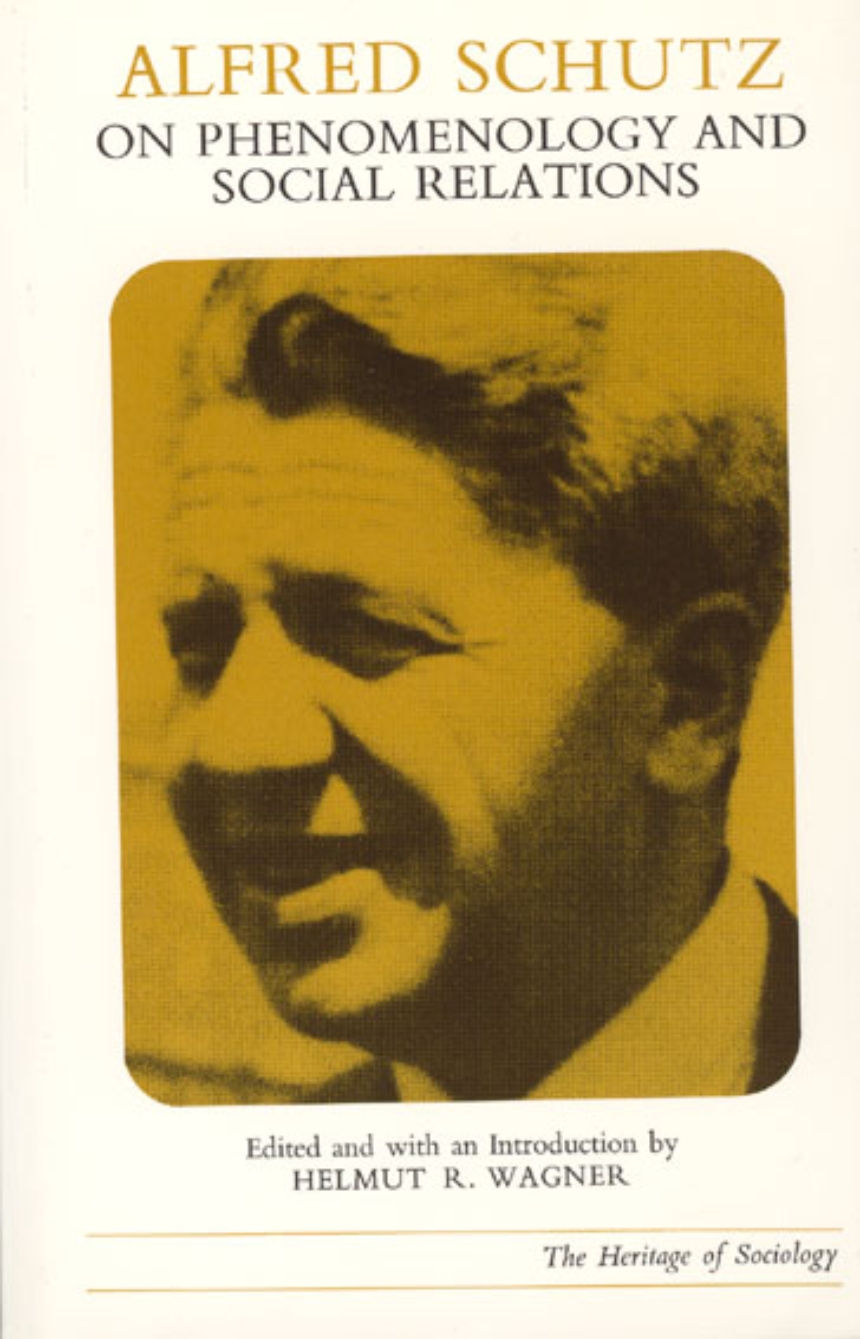Alfred Schutz on Phenomenology and Social Relations
Alfred Schutz (1899-1959) stood simultaneously in the camps of philosophy and sociology, and his writings constitute the framework of a sociology based on phenomenological considerations. Schutz’s basic contributions issue from a critical synthesis of Husserl’s phenomenology and Weber’s sociology of understanding. He proceeds on the basis of the irreducible souce of all human knowledge in the immediate experiences of the conscious, alert, and active individual. In this volume Helmut Wagner has selected and skillfully correlated various passages both from Schutz’s book The Phenomenology of the Social World and from his scattered papers and essays.
Table of Contents
Acknowledgments
Introduction by Helmut R. Wagner
I. Phenomenological Foundations
1. Phenomenological Baseline
2. The Life-World
II. The Cognitive Setting of the Life-World
3. Social Interpretation and Individual Orientation
4. Social Means of Orientation and Interpretation
5. Selective Attention: Relevances and Typification
III. Acting in the Life-World
6. Acting and Planning
7. Freedom, Choice, and Interest
IV. The World of Social Relationships
8. Interactional Relationships
9. Interpersonal Communication
10. Indirect Social Relationships
11. Distribution of Knowledge
V. Realms of Experience
12. Transcendences and Multiple Realities
VI. The Province of Sociology
13. Interpretative Sociology
14. Sociological Inquiries
Epilogue: Social Science Makes Sense
Glossary
Bibliography
Introduction by Helmut R. Wagner
I. Phenomenological Foundations
1. Phenomenological Baseline
2. The Life-World
II. The Cognitive Setting of the Life-World
3. Social Interpretation and Individual Orientation
4. Social Means of Orientation and Interpretation
5. Selective Attention: Relevances and Typification
III. Acting in the Life-World
6. Acting and Planning
7. Freedom, Choice, and Interest
IV. The World of Social Relationships
8. Interactional Relationships
9. Interpersonal Communication
10. Indirect Social Relationships
11. Distribution of Knowledge
V. Realms of Experience
12. Transcendences and Multiple Realities
VI. The Province of Sociology
13. Interpretative Sociology
14. Sociological Inquiries
Epilogue: Social Science Makes Sense
Glossary
Bibliography
